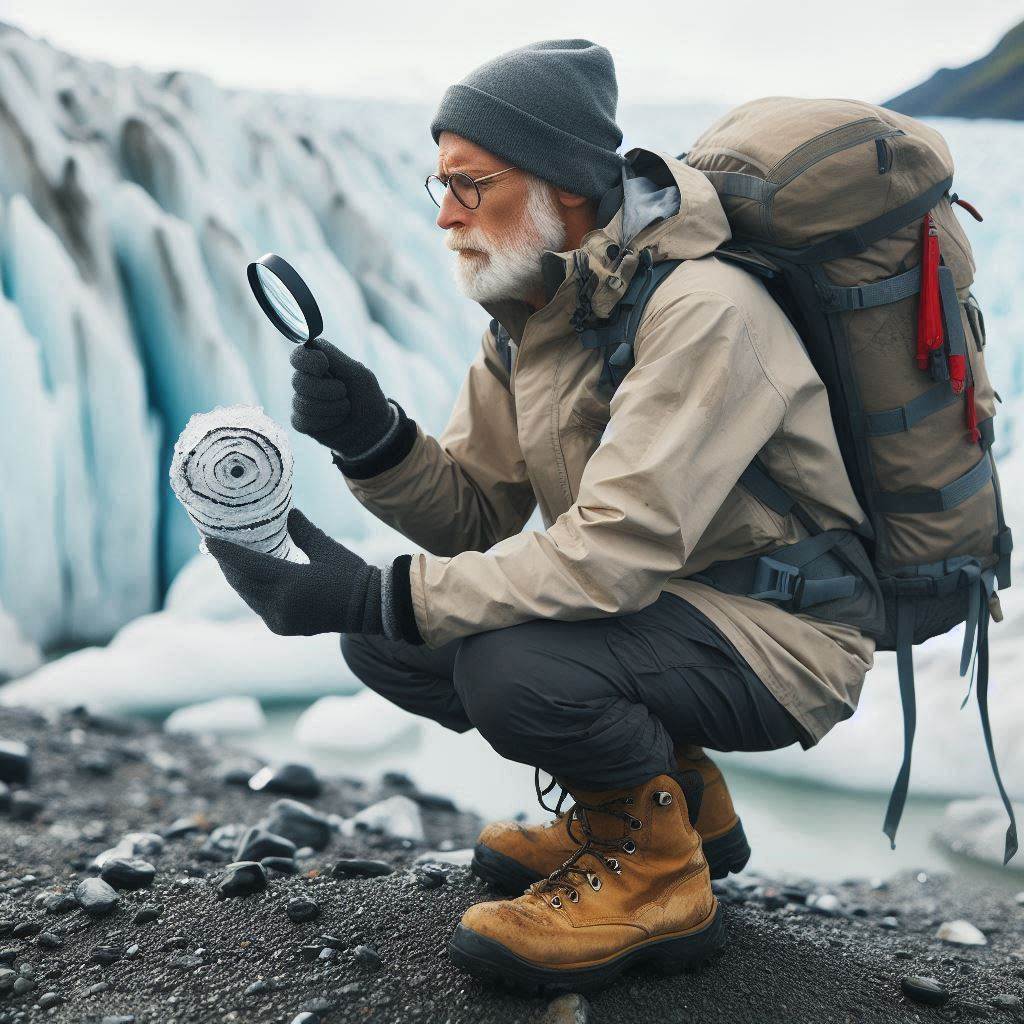Introduction
Starting a career in climate science offers a rewarding opportunity to make a positive impact.
The importance of climate science continues to grow as global temperatures rise and extreme weather events become more frequent.
Scientists in this field study complex climate systems and develop strategies to combat climate change.
As communities face severe weather, rising sea levels, and changing ecosystems, the demand for climate scientists increases.
This growing need highlights the vital role these professionals play in shaping environmental policies and sustainable practices.
This blog post aims to guide those interested in pursuing a career in climate science.
We will outline essential steps for getting started, including education, practical experience, networking, and specialization.
By following these guidelines, aspiring climate scientists can position themselves for success in this critical field.
Together, we can address the challenges posed by climate change and contribute to a sustainable future.
Whether you are just beginning your journey or seeking to expand your knowledge, this post will provide valuable insights for your career in climate science.
Research and Education
Importance of Gaining a Solid Educational Background in Climate Science
Starting a career in climate science begins with a strong educational foundation.
A solid background in climate science equips you with essential knowledge and skills.
Understanding climate systems, environmental policies, and data analysis is crucial for success in this field.
Different Academic Paths Available
Various academic paths can lead to a career in climate science.
You can pursue a degree in environmental science, which covers ecosystems and natural resource management.
Alternatively, a degree in atmospheric science focuses on weather patterns and climate dynamics.
Both paths offer valuable insights into climate issues and prepare you for specialized roles.
Consider a degree in geography or ecology, as these fields also address climate change impacts.
Many universities offer interdisciplinary programs that combine multiple areas of study.
This flexibility allows you to tailor your education to your interests.
Tips on Researching and Selecting the Right Educational Program or Institution
When selecting the right educational program, thorough research is essential.
Start by identifying universities known for their climate science programs.
Review their curricula to ensure they cover key topics such as climate modeling, remote sensing, and policy analysis.
Look for programs that offer hands-on experience through labs, fieldwork, or internships.
Practical experience enhances your understanding and makes you more competitive in the job market.
Additionally, investigate the faculty members and their expertise.
Learning from experienced professionals can enrich your education.
Check if they are involved in current research projects or have published papers in reputable journals.
Faculty mentorship can provide valuable guidance as you navigate your studies and future career.
Consider the program‘s location and available resources.
Studying in an area affected by climate change can provide real-world context for your education.
Proximity to research institutions or government agencies can also offer networking opportunities and internships.
Explore the availability of research facilities, laboratories, and climate data resources that can enhance your learning experience.
Networking plays a crucial role in advancing your career in climate science.
Attend seminars, workshops, and conferences to connect with professionals in the field.
Engaging with industry experts can lead to internship opportunities and collaborative projects.
Joining student organizations focused on environmental issues can also expand your network and deepen your understanding of climate science.
Gaining a solid educational background is vital for a career in climate science.
Explore various academic paths, such as environmental or atmospheric science.
Research educational programs thoroughly to find one that aligns with your goals.
Seek practical experience, engage with faculty, and build a network in the climate science community.
These steps will prepare you for a successful career dedicated to addressing climate change challenges.
Read: U.S. Cities with the Most Opportunities for Environmental Scientists
Gain Practical Experience
Significance of Gaining Hands-On Experience in Climate Science
Gaining hands-on experience in climate science is essential for building a successful career.
Practical experience allows you to apply theoretical knowledge in real-world situations.
It also helps you develop critical skills that employers seek.
Engaging in fieldwork or research enhances your understanding of climate issues and their complexities.
Opportunities for Internships, Volunteer Work, or Research Assistant Positions
Internships offer valuable opportunities to gain practical experience.
Many organizations, government agencies, and research institutions provide internships focused on climate science.
These positions allow you to work alongside experienced professionals and contribute to meaningful projects.
Look for internships that align with your interests, whether in environmental policy, data analysis, or field studies.
Volunteering can also be an excellent way to gain experience.
Many non-profit organizations focus on climate action and environmental conservation.
Volunteering for these organizations allows you to participate in community initiatives while expanding your network.
You can help with local climate awareness campaigns, restoration projects, or educational outreach efforts.
Research assistant positions provide another avenue for gaining practical experience.
Universities and research institutions often seek students to assist with ongoing studies.
These positions offer hands-on training in data collection, analysis, and report writing.
Working as a research assistant allows you to learn from experts in the field while contributing to impactful research.
Networking with Professionals in the Industry
Networking with professionals in the climate science industry is crucial for career development.
Building relationships with experts can lead to mentorship opportunities, internships, and job openings.
Start by attending conferences, seminars, and workshops related to climate science.
These events are excellent platforms for meeting professionals and learning about industry trends.
Join professional organizations dedicated to climate science or environmental issues.
Many of these organizations offer networking events, webinars, and resources for members.
Becoming an active participant can connect you with experienced professionals in the field.
Social media platforms can also serve as valuable networking tools.
LinkedIn is an excellent resource for connecting with climate science professionals.
Create a strong profile that highlights your skills and experiences.
Engage with industry-related content and join groups focused on climate science discussions.
Informational interviews can provide insights into career paths in climate science.
Reach out to professionals in your network and ask about their experiences.
This approach not only helps you gather information but also builds relationships in the industry.
Gaining practical experience is vital for success in climate science.
Pursue internships, volunteer opportunities, and research assistant positions to develop your skills.
Network with professionals through conferences, organizations, and social media platforms.
By taking these steps, you will enhance your knowledge and increase your chances of securing a rewarding career in climate science.
Read: Environmental Scientist vs. Ecologist: Roles and Differences in the US
Specialize in a Specific Area
Specialties Within the Field of Climate Science
Specializing in a specific area of climate science can enhance your career prospects.
Climate science encompasses various specialties, each focusing on different aspects of climate change.
One significant area is climate modeling.
Climate modelers use computer simulations to predict future climate scenarios based on current data.
Their work helps scientists understand potential climate impacts and inform policy decisions.
Another important specialty is environmental policy.
Professionals in this field develop and analyze policies aimed at mitigating climate change.
They work with government agencies, non-profits, and private organizations to advocate for effective climate legislation.
Understanding the legal and social aspects of climate science is crucial for success in this area.
Remote sensing is another exciting specialization.
Remote sensing experts use satellite technology to gather data on Earth’s climate and environmental changes.
This information is vital for monitoring climate trends and natural disasters.
Climate impact assessment is another crucial specialty.
Professionals assess how climate change affects ecosystems, human health, and infrastructure.
Their findings inform communities and policymakers about vulnerabilities and necessary adaptations.
Explore Different Areas of Interest
Exploring different areas of interest can help you find your niche within climate science.
Take time to research various specialties and their requirements.
Attend lectures, webinars, or workshops related to specific topics.
This exposure can help you discover your passions and strengths.
Consider job shadowing or informational interviews with professionals in different specialties.
These conversations can provide valuable insights into daily responsibilities and required skills.
Engaging with practitioners can clarify what each specialty entails and help you decide where to focus your efforts.
Participate in relevant projects or research initiatives to gain experience in various fields.
This hands-on experience can reveal your preferences and strengths.
Resources for Finding Information on Specialties
Finding resources to learn more about specific specialties is essential for your career development.
Start with academic journals and publications dedicated to climate science.
These resources often publish articles on the latest research and trends within the field.
Professional organizations, such as the American Meteorological Society (AMS), offer resources for aspiring climate scientists.
They provide information on various specialties, educational opportunities, and networking events.
Online platforms like Coursera and edX offer courses related to climate science.
These courses cover various topics, from climate modeling to environmental policy.
Enrolling in these programs can help you gain foundational knowledge and explore new areas.
Additionally, consider attending conferences and seminars focused on climate science.
These events feature experts discussing their specialties and emerging trends.
Networking at these gatherings can also connect you with potential mentors and job opportunities.
Specializing in a specific area of climate science enhances your career prospects.
Explore various specialties, attend workshops, and seek hands-on experience to discover your niche.
Utilize resources such as academic journals, professional organizations, and online courses to deepen your knowledge.
By focusing on a specialty, you can make a meaningful impact in the fight against climate change.
Read: The Relationship Between U.S. Policy & Environmental Scientist Roles

Develop Technical Skills
Importance of Developing Technical Skills
Developing technical skills is crucial for a successful career in climate science.
In today‘s data-driven world, proficiency in data analysis is essential.
Climate scientists must interpret complex data sets to understand trends and make informed decisions.
Strong analytical skills enhance your ability to evaluate climate models and predict future scenarios.
Computer modeling is another vital technical skill.
Climate modelers use sophisticated software to simulate climate processes.
Understanding modeling techniques allows you to contribute significantly to climate research.
Proficiency in computer programming languages, such as Python or R, further strengthens your modeling capabilities.
Geographic Information Systems (GIS) skills are increasingly important in climate science.
GIS helps visualize and analyze spatial data related to climate change.
Experts use GIS to assess the impacts of climate change on various ecosystems.
Developing these skills enhances your employability and opens up various career paths.
Recommendations for Online Courses, Workshops, or Certifications
Many online platforms offer courses and certifications to improve your technical skills.
Websites like Coursera and edX feature courses on data analysis, climate modeling, and GIS.
You can find programs tailored to your experience level, from beginner to advanced.
Consider enrolling in workshops hosted by professional organizations.
These workshops often focus on specific skills, such as data visualization or statistical analysis.
They provide hands-on experience and opportunities to work with experts in the field.
Certifications can also enhance your qualifications.
Organizations like the GIS Certification Institute offer recognized credentials in GIS.
Earning a certification demonstrates your commitment to professional development and technical expertise.
Advice on Staying Current with Emerging Technologies
Staying current with emerging technologies is essential for climate science professionals.
Regularly read scientific journals and publications to stay informed about new developments.
Journals like “Nature Climate Change” and “Journal of Climate” publish the latest research in the field.
Participate in webinars and online conferences focused on climate science technologies.
These events provide insights into cutting-edge research and innovations.
Engaging with experts during these events can deepen your understanding of new tools and techniques.
Join professional organizations related to climate science and technology.
Membership often includes access to resources, newsletters, and networking opportunities.
Being part of these organizations can keep you informed about industry trends and advancements.
Networking with professionals in the field can also help you stay updated.
Connect with colleagues on platforms like LinkedIn to share information and resources.
Engaging with peers can expose you to new ideas and tools relevant to climate science.
Consider following industry leaders and organizations on social media.
They often share valuable information about emerging technologies and research findings.
By actively engaging with these sources, you can expand your knowledge and stay current in the rapidly evolving field of climate science.
Developing technical skills is vital for success in climate science.
Focus on data analysis, computer modeling, and GIS to enhance your expertise.
Take advantage of online courses, workshops, and certifications to improve your skills.
Stay current with emerging technologies by reading, participating in webinars, and networking with professionals.
By continuously developing your technical skills, you can significantly contribute to addressing climate change.
Read: Organizations & Associations for Environmental Scientists in the USA
Learn More: Pharmacologist Licensing and Certification Requirements
Gain More Insights: Hydrologist Career Path: Education and Experience
Build a Professional Network
Importance of Networking in Climate Science
Networking with professionals in the climate science industry is crucial for career advancement.
Building a strong network opens doors to various opportunities.
Collaborating with experienced individuals helps you gain insights into the industry.
Networking can also lead to mentorship, which is invaluable for personal and professional growth.
A robust professional network enhances your understanding of current trends and challenges in climate science.
Engaging with diverse perspectives fosters creativity and innovation.
Moreover, your connections can provide guidance and support as you navigate your career path.
Transform Your Career Today
Unlock a personalized career strategy that drives real results. Get tailored advice and a roadmap designed just for you.
Start NowTips for Attending Conferences and Joining Professional Organizations
Attending conferences is an effective way to meet industry professionals.
Look for climate science conferences, workshops, and seminars in your area.
Prepare in advance by researching attendees and speakers.
Identify key individuals you want to connect with during the event.
When attending, approach others with genuine interest.
Introduce yourself, share your background, and express your enthusiasm for climate science.
Don’t hesitate to ask questions and engage in conversations.
Building rapport during these interactions can lead to lasting connections.
Joining professional organizations related to climate science can also expand your network.
Organizations often provide members with resources, events, and networking opportunities.
Consider joining associations like the American Meteorological Society (AMS) or the Global Climate Change Network.
These memberships often come with access to industry news, webinars, and job postings.
Engage actively in these organizations by attending meetings and participating in discussions.
Volunteer for committees or projects to increase your visibility within the group.
Taking initiative demonstrates your commitment to the field and helps you connect with like-minded professionals.
Connecting with Mentors
Finding a mentor is a valuable aspect of building your professional network.
Mentors provide guidance, share their experiences, and offer support throughout your career.
Look for mentors within your academic institution, workplace, or professional organizations.
When approaching potential mentors, be clear about your goals and what you hope to gain from the relationship.
A respectful and sincere approach increases your chances of forming a meaningful connection.
Building a mentoring relationship takes time, so be patient and invest effort into nurturing it.
How a Strong Professional Network can help with finding job opportunities and advancing in one’s career
A strong professional network can significantly help with finding job opportunities.
Many job openings arise through personal connections rather than traditional job postings.
Employers often prefer candidates referred by trusted colleagues, increasing your chances of securing interviews.
Networking can also lead to collaboration on research projects or initiatives.
Engaging with other professionals allows you to work on impactful projects and enhance your skills.
These experiences can make your resume stand out to future employers.
Furthermore, a well-established network provides access to industry insights and trends.
Staying informed about developments in climate science can help you adapt and remain relevant.
Networking helps you build relationships with peers, mentors, and industry leaders, facilitating career growth and development.
Building a professional network is essential for success in climate science.
Attend conferences, join professional organizations, and seek mentors to expand your connections.
A strong network enhances your job prospects and career advancement opportunities.
By actively engaging with others in the field, you can foster valuable relationships that support your journey in climate science.
Stay Informed and Engaged
Importance of Staying Informed
Staying informed about current developments and debates in climate science is crucial for professionals.
The climate science field evolves rapidly, with new research and findings emerging regularly.
Understanding these developments enhances your knowledge and informs your work.
Awareness of ongoing debates helps you engage meaningfully in discussions within the community.
Moreover, staying updated allows you to adapt your strategies and methodologies based on the latest research.
This adaptability is essential for effective problem-solving and decision-making.
Follow Relevant Websites and Journals
To stay informed, follow relevant websites and journals dedicated to climate science.
Websites like the National Oceanic and Atmospheric Administration (NOAA) and the Intergovernmental Panel on Climate Change (IPCC) provide valuable resources and updates.
These organizations publish reports, articles, and data that keep you informed about climate trends and policy changes.
Academic journals, such as “Nature Climate Change” and “Global Environmental Change,” are excellent sources for in-depth research articles.
Regularly reading these publications can enhance your understanding of complex topics and current debates.
Subscribing to newsletters from these organizations ensures you receive updates directly in your inbox.
Utilize Social Media for Updates
Social media platforms are powerful tools for staying informed about climate science.
Follow experts, researchers, and organizations on platforms like Twitter and LinkedIn.
Many professionals share their insights and articles on these platforms, providing a wealth of information at your fingertips.
Joining relevant groups and forums can also enhance your understanding of current trends.
Engaging in discussions within these online communities fosters connections and encourages the exchange of ideas.
Participate in Discussions, Workshops, and Conferences
Participating in discussions, workshops, and conferences is vital for staying engaged with the climate science community.
Look for local and international events that focus on climate research, policy, and technology.
These gatherings often feature experts discussing their latest findings and approaches.
Attending workshops allows you to gain hands-on experience and learn about new tools and techniques.
Many workshops offer opportunities to collaborate with peers and share knowledge.
Engaging in these experiences can deepen your understanding of climate science.
Conferences provide excellent networking opportunities and access to a broad range of topics.
Engage with speakers and attendees, ask questions, and share your insights.
Building relationships during these events can lead to collaborative projects and career opportunities.
Join Online Forums and Communities
In addition to in-person events, consider joining online forums and communities dedicated to climate science.
Websites like ResearchGate and Academia.
edu allow you to connect with researchers worldwide.
Participating in discussions and sharing your expertise fosters a sense of community and collaboration.
Many online platforms host webinars and virtual discussions on emerging topics in climate science.
These events provide opportunities to engage with experts without geographical limitations.
Staying informed and engaged in climate science is essential for professionals.
Follow relevant websites, journals, and social media accounts to keep up with developments.
Participate in discussions, workshops, and conferences to connect with the community.
By actively engaging with the field, you can enhance your knowledge and contribute to meaningful discussions in climate science.
Uncover the Details: Nuclear Science and Space Exploration
Conclusion
Starting a career in climate science requires a strategic approach and dedication.
This blog post highlighted several essential steps for aspiring climate scientists.
First, gaining a solid educational background in climate science sets a strong foundation.
Choose academic paths like environmental science or atmospheric science that align with your interests.
Next, gaining practical experience is crucial.
Pursue internships, volunteer positions, or research assistant roles to apply your knowledge in real-world settings.
Building a professional network through conferences, organizations, and mentorship is vital for career growth.
Networking opens doors to job opportunities and valuable insights from industry experts.
Specializing in a specific area within climate science allows you to find your niche.
Explore various specialties, such as climate modeling or environmental policy, to identify your passion.
Developing technical skills in data analysis, computer modeling, and GIS further enhances your expertise and marketability.
Finally, staying informed and engaged with the climate science community is essential.
Follow relevant websites, journals, and social media accounts to keep up with the latest developments.
Participate in discussions and attend workshops to connect with others in the field.
I encourage you to take proactive steps toward starting your career in climate science.
Pursue your interests, seek opportunities, and never hesitate to reach out for guidance.
This field is vital for addressing global challenges, and your contributions can make a significant impact.
Embrace the journey ahead, and remember that every step you take brings you closer to a fulfilling career in climate science.
[E-Books for Sale]
The Big Book of 500 High-Paying Jobs in America: Unlock Your Earning Potential
$19.99 • 500 High-Paying Jobs • 330 pages
Explore 500 high-paying jobs in America and learn how to boost your career, earn more, and achieve success!
See All 500 High-Paying Jobs of this E-Book
1001 Professions Without a Degree: High-Paying American Jobs You Can Start Now
$19.99 • 1001 Professions Without a Degree • 174 pages
Discover 1001 high-paying jobs without a degree! Unlock career tips, skills, and success strategies for just $19.99!




